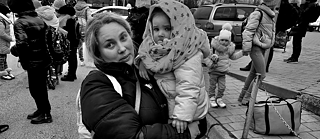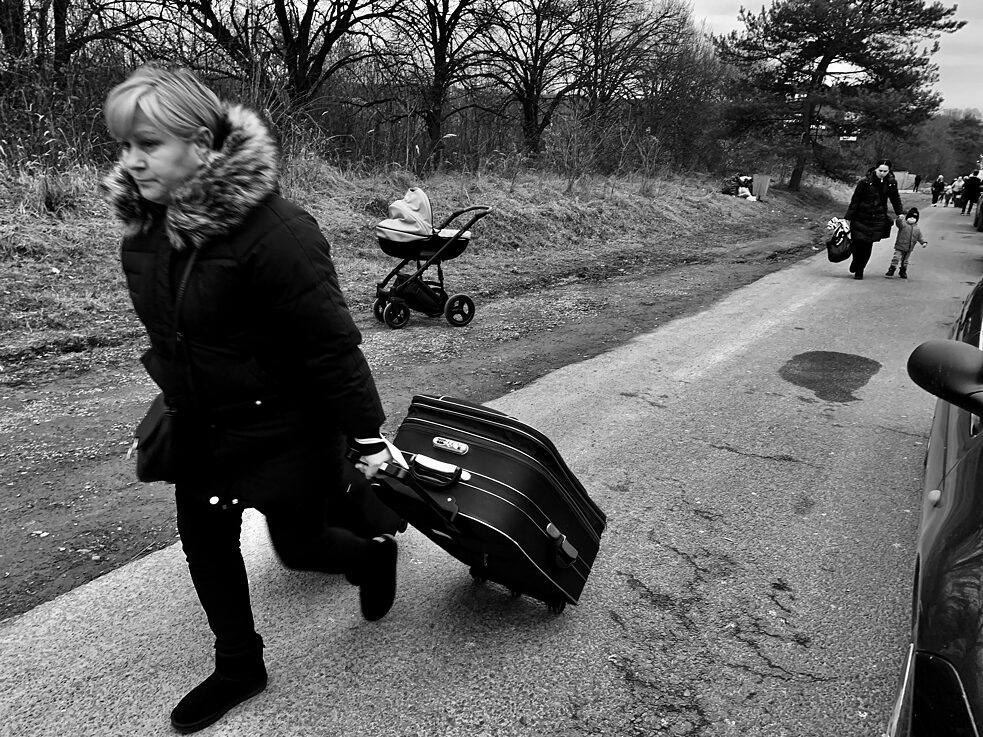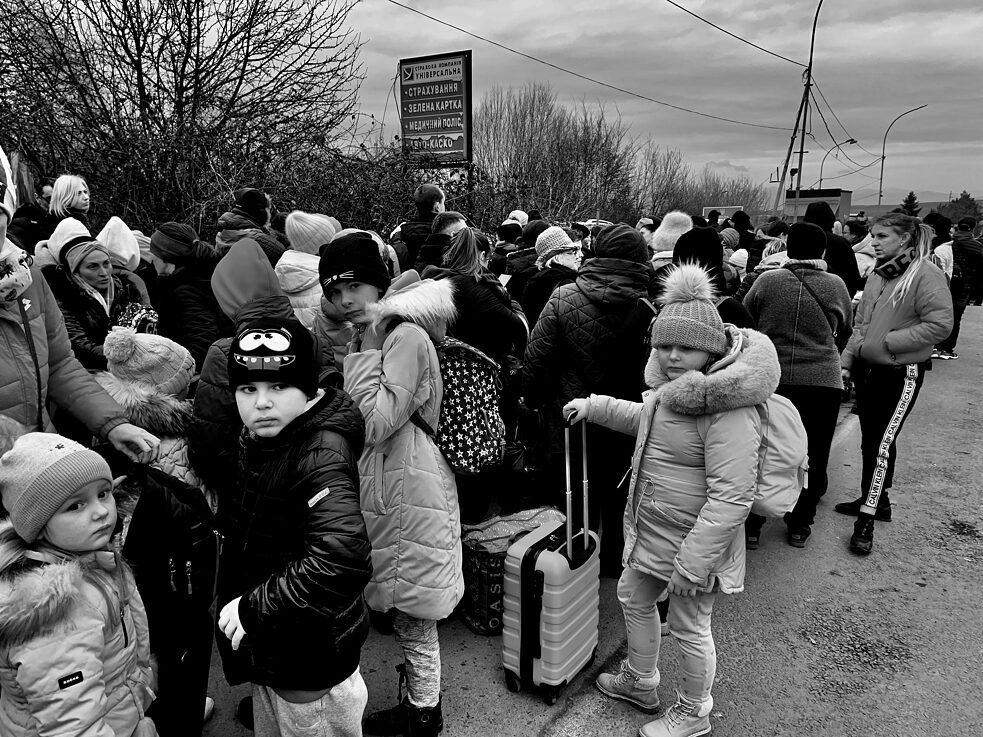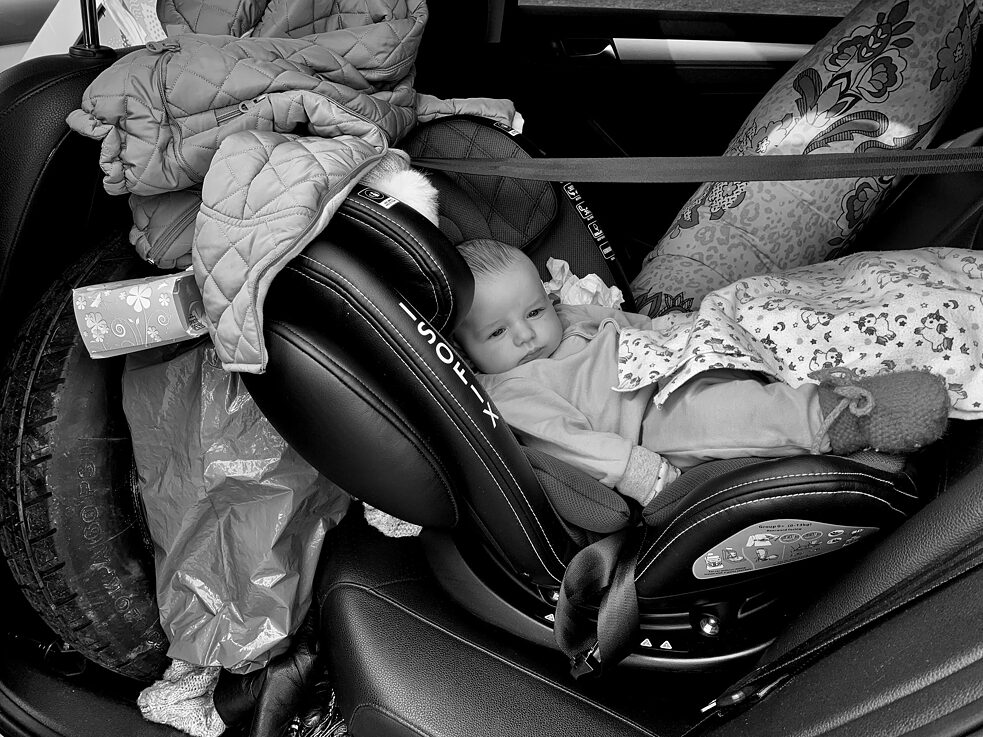War in Ukraine “My first refugee”

Photo (detail): © Andrej Bán
Our personal experiences with war refugees may disabuse us Europeans of some illusions, but they’re also bound to reveal strengths and qualities we hardly knew we had. So, however hard this test of our commitment to humanitarian principles may prove, it’s bound to end well, trusts Slovak reporter and photographer Andrej Bán.
There’s a first time for everything in life (except death): first time you ride a bike, first playground fight, first report card, first love, first marriage and so on. Though fleeting experiences, they all leave a lasting mark on our lives. Since the Russian invasion of Ukraine, many people in Central and Eastern Europe have added another first to their imaginary list of new life-changing experiences: “my first refugee”.And they’ve discovered in themselves an unexpected capacity for compassion and solidarity with those who, fearing for their very lives, have fled their homes and their country, often bringing with them nothing but the bare necessities.
Refugees in the Living Room
The war has entered European homes, not only in the constant media coverage on TV and on our smartphones, not only in our fears for Ukraine’s civilians amid the ongoing shelling and other attacks by the Russian army on towns and villages. The war has literally entered our living rooms now, as we Europeans, eager to help out any way we can, invite Ukrainian refugees to live in our own homes. Some of us let them use our whole houses or flats free of charge, others a room in our homes.As a result, refugees are no longer mere news items or statistics: they’re real people, and our personal experiences of living with them are putting to the acid test our commitment to our own humanitarian principles and those of our society.
I feel that this may prove a difficult test, but one that’s bound to end well. Because the impersonal stories we’ve been following in the media are now being fleshed out and ultimately supplanted by our own personal experiences. To be sure, many willing helpers are likely to overestimate their fortitude and staying power, many will soon find their new housemates a burden, and only a sense of shame will keep them from talking about that. All this is perfectly natural.
Others will wonder why the Ukrainian woman they’re putting up in their now grown-up children’s room is so mournful, so melancholy and silent. It’s only because we’ve no experience in such matters. We should read and listen to what experts, psychologists and psychiatrists, have to say about post-traumatic stress and memories of past horrors. Those who’ve been through hell tend to clam up. This behaviour mustn’t be mistaken for ingratitude.
Tentative Optimism
These refugees in our familiar surroundings are a fundamentally new experience, comparable to the mass displacements in Europe after World War II. Beginning in 2015, refugees began coming to us from the Middle East, mostly from Syria and Iraq, via the Balkans. Most were Muslims. The cunning politicians of the Visegrád states (Czech Republic, Hungary, Poland and Slovakia) then turned the humanitarian narrative on its head and declared these desperate refugees an “aggressive mass” that would “overwhelm” us and undermine our “traditional Christian values”. Yet the majority of them were suffering no less than Ukrainians are today.And this is true whether we employ the legal term “asylum-seekers” or “persons seeking temporary refuge” or simply call them “refugees” or “migrants”. Let's stop quibbling about words! These are all people who need our help. I’d like to recount an experience I had almost a quarter of a century ago. At the time, we’d not yet been “overrun” by a “wave of mass migration”, as people tend to call it – as though it were primarily about us, who live in peace and prosperity, being overrun by something terrible. In fact, it’s simply a matter of helping people in need.
Anyway, back in the winter of 1999, after I’d founded a humanitarian organization called Človek v ohrození (People in Need), some strangers unexpectedly showed up on my doorstep in Bratislava. “My zdes,” they said in Russian: “We’re here.” It soon turned out that they were a Slovak family from Kazakhstan. Even though there was no war there, they’d sold everything they had back home – house, car, land, everything – and come to us with three thousand dollars in their pockets, hoping my co-workers and I would help them start a new life.
Ultimately, they (and we) succeeded. Twenty family members are now living, studying and marrying in Slovakia. But we had to overcome huge bureaucratic hurdles together, closed doors at state institutions as well as the reluctance of many individuals. The Slovak filmmaker Jaro Vojtek has made an award-winning documentary about their story.
Today, when I see Ukrainian refugees – and my compatriots helping them out – I often think of that Slovak family from Kazakhstan. Both were and are heartbreaking. But I have a tentative hope that we as a country may now have inched a little further towards more empathy and helpfulness.
This text first appeared in the German-Czech-Slovak online magazine Jádu and can be read these languages in full there.



0 Comments